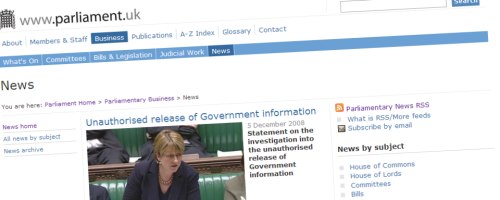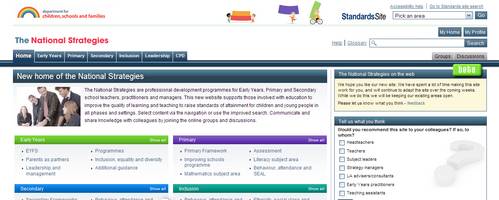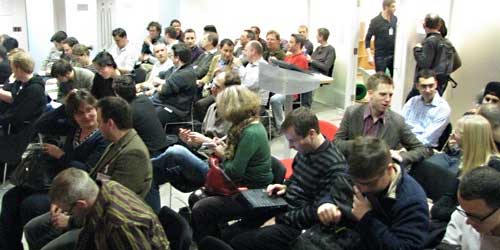
I spoke last Friday at ScotWeb2, organised by (now former) civil servant Alex Stobart to talk about Scotland and web 2.0, open source, engagement, all that good stuff – with a particular, but not exclusive, focus on public sector activity. There isn’t yet (so I’m told) much of a critical mass for this stuff north of the border, and this was an effort to kick-start things.
It’s a story I’ve told many times before: how open source software and free services can be a match (or more) for mega-expensive content management solutions; how the rock-bottom cost of development should make us reconsider the meaning of ‘failure’; and the fact that whatever you want to do online, you could probably now do it. As ever, it turned into a WordPress evangelism session, and I think I’ve encouraged a few people to look at it for their more modest online projects. It’s becoming a very easy ‘sell’.
James Munro from Patient Opinion was up before me. His starting point was that people would share their views of NHS services, whether you provided a mechanism or not – but I didn’t expect him to quote Flickr or YouTube as the platforms people might use. Having initially been funded by the Department of Health, 50 NHS organisations are now paying for ‘value added’ services on the Patient Opinion site… and with the NHS in Scotland being a separate entity, James talked about looking to expand northwards.
If I’m honest, I was a little distracted during the afternoon’s proceeding; having got my Googlephone on launch day, I hadn’t had the chance to play with it. (Er, I mean, configure it properly.) But there were – inevitably – some interesting discussions in the pub afterwards – concentrating most notably on also-ran Scottish football. By which, of course, I mean all of it apart from Rangers and Celtic.
The event took place at Edinburgh University‘s education faculty (?), a few doors up from the Scottish Parliament, but I was struck by the event’s very different atmosphere compared to, let’s say, a similar seminar in Westminster. Much more relaxed, with no problem interrupting speakers’ presentations, and with people on all sides of the political game happy to chat. I’d never been to the Parliament building – and it’s reassuringly, remarkably ordinary. If that’s what comes of devolution, let’s have more of it.
Hi to some of the guys I met on the day: LibDem PPC Stephen Glenn, ex-Green MSP Mark Ballard, blogger Duncan Stephen and Stewart from w00tonomy… and thanks to Alex for making it happen.



 PR Week is
PR Week is 


